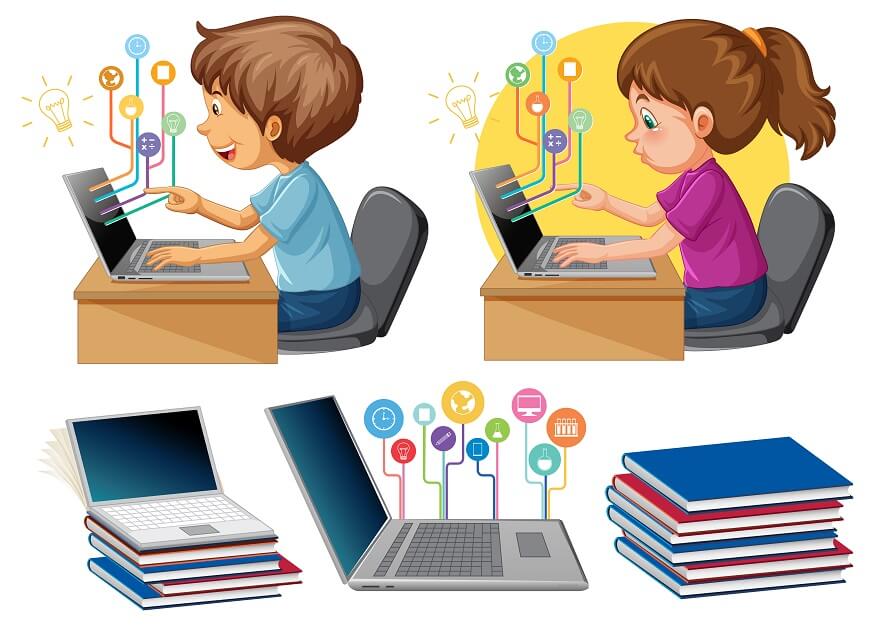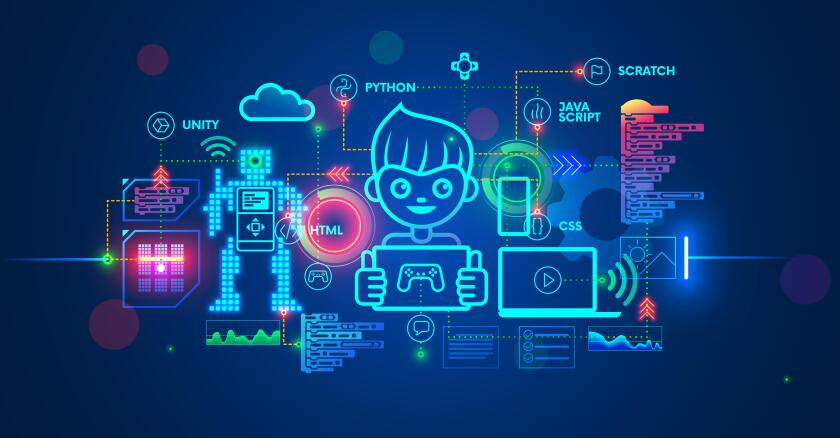Comprehensive Organization Guides for Progressing Modern Technology Education in Schools and Colleges
The assimilation of innovation education and learning into institution and college educational program has actually come to be a crucial vital in preparing students for an increasingly digital labor force. Comprehensive company guides play a crucial role in this change by detailing the essential structures for effective program application, cultivating important industry partnerships, and measuring academic end results. As schools aim to straighten themselves with market demands, the opportunities and difficulties offered by these overviews merit a closer examination. Education. What details methods can be embraced to optimize their influence on both trainees and educators?
Significance of Innovation Education And Learning
As innovation continues to develop at an unmatched rate, the value of innovation education and learning has ended up being significantly evident in today's culture. The combination of modern technology right into numerous facets of life demands that individuals possess a fundamental understanding of technical concepts and applications. This understanding not only improves employability however likewise fosters crucial reasoning and analytical abilities important for navigating a dynamic workforce.
In universities, modern technology education and learning outfits students with the capacity to adjust to fast changes in sectors driven by development. It encourages creativity and encourages learners to engage with arising technologies, from man-made intelligence to information analytics. Moreover, modern technology education and learning advertises electronic literacy, which is essential in a period where information is readily available yet typically deceptive.

Key Components of Effective Guides
Effective overviews for technology education and learning must incorporate numerous vital components to ensure that students gain one of the most from their experiences. A well-defined curriculum is crucial, outlining the purposes, finding out results, and the skills to be established. This curriculum ought to be frequently upgraded to reflect the swiftly progressing technical landscape, ensuring relevance and applicability.
Second, comprehensive sources that include books, online materials, and hands-on tools are essential. These resources need to be diverse and easily accessible, dealing with various finding out preferences and designs. Furthermore, integrating real-world circumstances and case researches can boost understanding and engagement.
Third, evaluation strategies should be included to evaluate learner progress efficiently. These evaluations ought to be varied, including cumulative and developmental assessments that straighten with the understanding purposes.
Moreover, expert advancement chances for educators are crucial. Educating workshops and programs can equip instructors with the current technological improvements and pedagogical techniques.
Lastly, cultivating a collaborative knowing setting encourages peer interaction and understanding sharing. By including these vital elements, guides for innovation education and learning can significantly enhance the understanding experience, preparing pupils for future obstacles in an increasingly electronic globe.
Building Industry Partnerships
Structure solid sector partnerships is an essential element of improving modern technology education and learning. These cooperations between universities and companies create a dynamic environment that benefits pupils, companies, and educators alike. By cultivating connections with sector universities, schools and leaders can align their curricula with the developing needs of the job market, guaranteeing that students obtain relevant skills and expertise.
The development of internships, apprenticeships, and mentorship programs offers as a foundation of these collaborations. Such opportunities give pupils with hands-on experience, enhancing their employability and sensible understanding of modern technology applications. Additionally, sector companions can use understandings right into arising trends and technological innovations, enabling teachers to adjust their training methods as necessary.
In addition, collaborations can help with accessibility to sources, such as tools, software program, and financing for research study jobs. These contributions enhance the finding out setting and enable institutions to stay at the center of technical development. Ultimately, building robust industry collaborations is vital for cultivating a proficient workforce that fulfills the requirements these days's rapidly changing technological landscape, while additionally driving financial development and competitiveness in the wider neighborhood.
Implementing Modern Technology Programs
Applying technology programs within educational institutions needs a critical strategy that prioritizes both curriculum growth and resource appropriation. To launch successful innovation assimilation, institutions must initially examine their existing facilities and identify gaps in resources, including equipment, software program, and workers training. This analysis enables universities and colleges to develop a customized plan that straightens with their specific educational objectives.
Next, it is vital to develop a thorough curriculum that incorporates arising modern technologies and market standards. Teaming up with instructors, industry specialists, and stakeholders can guarantee that the educational program stays reliable and pertinent in preparing trainees for the labor force (Insurance). In addition, specialist advancement for faculty is crucial, as it furnishes instructors with the abilities necessary to effectively show new technologies
Furthermore, establishments must emphasize the significance of hands-on knowing experiences, such as labs and workshops, that permit students to apply academic expertise in useful settings. This experiential method boosts interaction and fosters important thinking. Securing sustainable funding with partnerships and grants can help maintain and broaden innovation programs, making certain lasting success and adaptability in an ever-evolving technical landscape.
Measuring Success and Outcomes
Analyzing the success and end results of technology education programs is important for verifying their effect and assisting future renovations. Efficient measurement frameworks need to include both qualitative and measurable metrics, supplying an extensive view of program efficacy. Key efficiency indications (KPIs) such as student enrollment figures, retention rates, and course completion percents provide beneficial quantitative information.

Integrating standard evaluations can additionally review students' technical competencies and readiness for the labor force. Benchmarking against comparable organizations permits contextually appropriate comparisons, highlighting areas for development.
Ultimately, the continual assessment of innovation education and learning programs cultivates a society of improvement, making certain that they advance in placement with market demands and academic criteria. By systematically gauging success, institutions can not just show liability to stakeholders but likewise improve their offerings, thereby enhancing the finding out experience and preparing students for the ever-changing technological landscape.
Final Thought

The combination of technology education and learning into college and university educational program has come to be a vital essential in preparing students for an increasingly digital workforce.As innovation continues to progress at an extraordinary rate, the value of modern technology education and learning has become progressively try these out apparent in today's society.In instructional establishments, technology education gears up trainees with the capability to adapt to quick modifications in sectors driven by development. By focusing on technology education and learning, organizations can grow a generation of informed people capable of leveraging technology for societal and individual development. The execution of durable assessment strategies makes it possible for establishments to measure success and outcomes, inevitably improving the general efficiency of technology education efforts and preparing trainees for future obstacles.